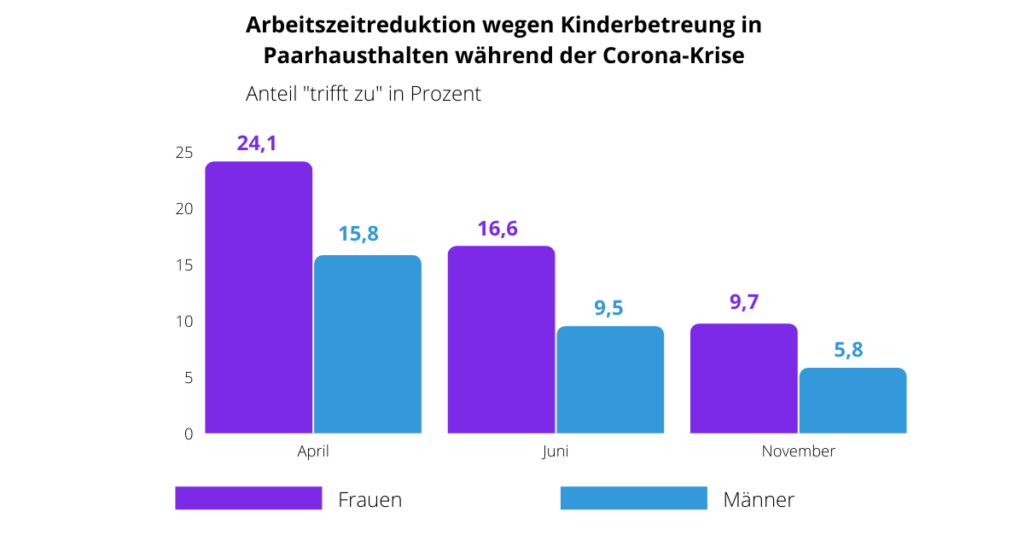How much has Corona changed corporate education?
Most companies and employees have made the best of the crisis. But the corona-related effects on our working environment and personnel development will outlast the pandemic. However, these can be quite positive if companies adapt to new requirements in good time.
In the following article, you will learn what has changed in corporate education at the start of 2022, where employees should now be supported and how companies can use these effects to their advantage.

Corporate education is becoming increasingly digital. Digitalization has a strong impact on personnel development, especially in times of Corona. However, it should not be ignored that even before the crisis, the need for digital education among companies was steadily increasing. As early as 2019, USD 18.66 billion was invested in digital education worldwide.
By 2025, according to a Renub Research According to projections, the market for educational technology will continue to increase in value and grow to 350 billion US dollars worldwide. Companies can expect innovative new developments here that they should not miss.
Why do continuing education programs need to change?
On the one hand, the corona pandemic has led to many people being put on short-time working, losing their jobs or even having to give them up. The reasons for this are numerous. One common reason was the closure of companies. However, taking care of relatives or children while online often played a role as well. Women were statistically more affected by these effects of the pandemic than men (see Figure 1). At the same time, the crisis also made it clear to the workforce how unstable some industries and professions actually are. The conclusion drawn from these observations was that the current world of work was inadequately prepared for the current demands of digital and data-based work.
In particular, the increase in the number of training courses taken up by both employees and job-seeking individuals illustrates this development even more clearly. A lateral entry into a future-proof industry or the acquisition of an additional qualification that steers one's career in a different direction is becoming increasingly desirable in times of economic uncertainty and changing job requirements.
Job entrants were particularly affected by the changed conditions on the labor market during the pandemic. Industry is particularly dependent on the next generation of well-trained specialists and their innovative potential. Companies that support young employees and make it easier for them to enter the workforce will gain a competitive advantage in the coming years. This is because it has been statistically proven that young talents, when encouraged, are particularly motivated to continue their education and apply their knowledge in their careers. Motivation to learn thus has a positive impact on personnel development throughout the company and promotes a culture of lifelong learning.

According to information from the following HBS-Labor Force Survey from 2021
What are the advantages of in-company (further) training for employers?
The Corona Crisis has involuntarily driven digitization forward in many respects and was thus able to jump over many different hurdles at the same time. Companies were able to observe a particularly positive reduction in fear of contact with the topic of digitization. Some employees were coming into contact with digital education for the first time. It became clear that digital education offerings could certainly keep up with analog offerings and also offer advantages of their own that go beyond mere expediency during the corona pandemic.
This realization ensured that companies increasingly sought to promote the digital competence of their employees. The digitization of internal training measures was a milestone for personnel development in the company. In most cases, the wall that had to be overcome was not the technical implementation, but the inner mindset of many companies regarding the necessity or how to implement digital transformation. This newly developed mindset toward the necessity of digitization not only promoted digital education, but was also instrumental in the development of a digitally affine data culture.
In order not to waste this opportunity, it is now particularly important to further expand the benefits. The first step that is therefore necessary would be a data-driven analysis of employees' training needs and learning success. Particular emphasis should be placed on promoting those competencies that employees can pass on to other employees and that will benefit companies in the long term.

What should companies look for when choosing a training partner?
Digital learning has enormous relevance for personnel development. For this reason, it is important for the success of corporate training that companies look for reliable partners who not only shine with technical expertise, but can also convince with a sophisticated mentoring approach.
The market is now flooded with digital training providers. This makes for a confusing oversupply of providers and platforms . Simply creating and uploading an online course is simply not enough in 2022. It is necessary to design learning content in a hands-on way to encourage learner engagement. The weaknesses of traditional face-to-face instruction are also present in their digital counterparts. It is therefore necessary to involve participants as much as possible. When selecting a digital training provider, it is therefore essential to ensure that employees receive the best possible support during the courses and can also apply the knowledge they have acquired in practice.
One significant advantage that digital education has over conventional face-to-face instruction is that the individual learning preferences of all participants can be better taken into account. Digital education is also more flexible, as learning content can be repeated as often as required or fast-forwarded and rewound. In addition, digital content can be accessed regardless of location. In addition, a hybrid model makes it possible to combine self-directed, digital learning with voluntary webinars in order to be able to answer unanswered questions despite the distance and at the same time enable an exchange with the corresponding "peer group".

From the perspective of a digital learning provider
As a training provider with a particular focus on data, we have noticed how companies' motivation to use data literacy to drive workforce development has increased since the pandemic began. However, the full impact of the pandemic on workforce development will only become apparent in the long term. Nevertheless, many companies are already making it a priority to meet their employees' desire for internal training. This could also counteract the growing shortage of skilled workers. The need for data experts is growing steadily. Not least, companies are therefore increasingly relying on internal reskilling to fill important gaps and retain valuable specialists in the long term.
For this reason, we recommend that decisions be made less on the basis of gut feeling and more on the basis of data-driven action. A development towards data-driven action is necessary, whether related to business or internal decisions. Only through fact-based changes can future crises be responded to in the best possible way.
Conclusion
The crisis has had a huge impact on corporate training and staff development. The changes that result do not have to be negative. If companies react early, positive innovations can also be drawn from the crisis. Particular emphasis should be placed on these three factors:
- Employees and potential new employees for whom further training is particularly worthwhile should be identified in good time.
- The increased commitment of employees to further training within their profession, especially with regard to digital skills, should be leveraged.
- Companies should focus on finding a learning provider that suits them and ensures learning success through good mentoring, even away from their learning content.
The digitization promoted by the crisis offers companies now in 2022 the chance to continue to remain competitive on an international level in the coming years if they recognize the new opportunities and use them for themselves.
Sources
- Markets Insider (2020): "2019 Global Edtech Investments Reach a Staggering $18.66 Billion" [12.11.2021]
- Renub Research (2019): "Online Education Market & Global Forecast, by End User, Learning Mode (Self-Paced, Instructor Led), Technology, Country, Company." [12.11.2021]
- Federal Ministry of Education and Research (2018): "Adult Education Survey 2018" [12.11.2021].
- DIW Berlin (2021) DIW Wochenbericht, No. 15 2021, page 264




